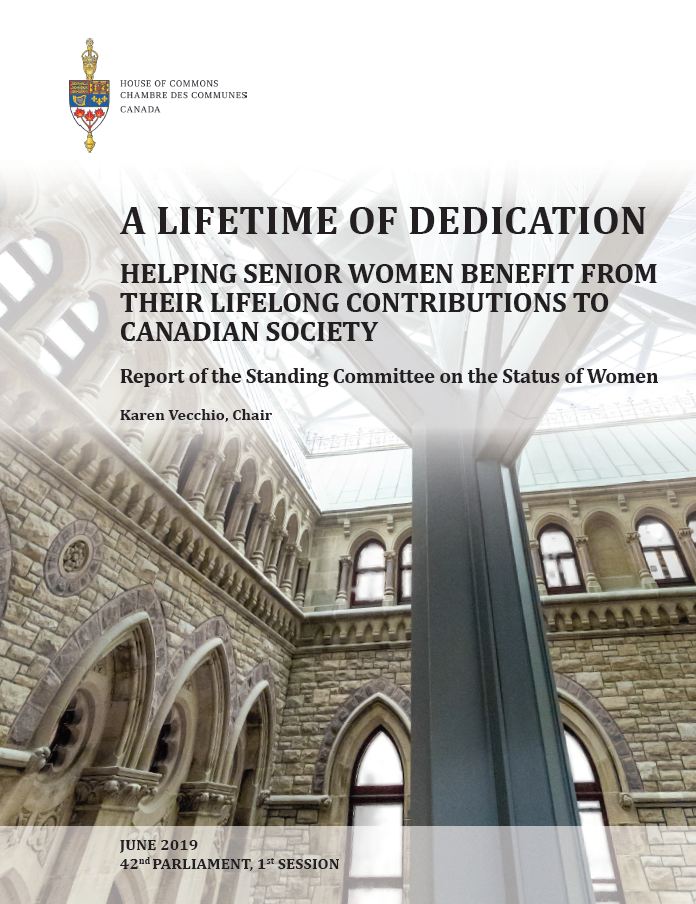 Report of the Standing Committee on the Status of Women
Report of the Standing Committee on the Status of Women
"In recent decades, life expectancy has increased around the world. In Canada, the proportion of seniors in the population is increasing faster than any other age group. In the 65 years and older age group, there are more women than there are men. Women also live longer than men on average, by several years. In recent decades, life expectancy has increased around the world. In Canada, the proportion of seniors in the population is increasing faster than any other age group. In the 65 years and older age group, there are more women than there are men. Women also live longer than men on average, by several years.
Although women tend to live longer than men in Canada, their senior years may be different from those of men because of challenges related to poverty and vulnerability. Senior women are more likely than senior men to live with low incomes. Senior women can face health and wellness difficulties, as well as discrimination, abuse and gender-based violence that may not be experienced by senior men.
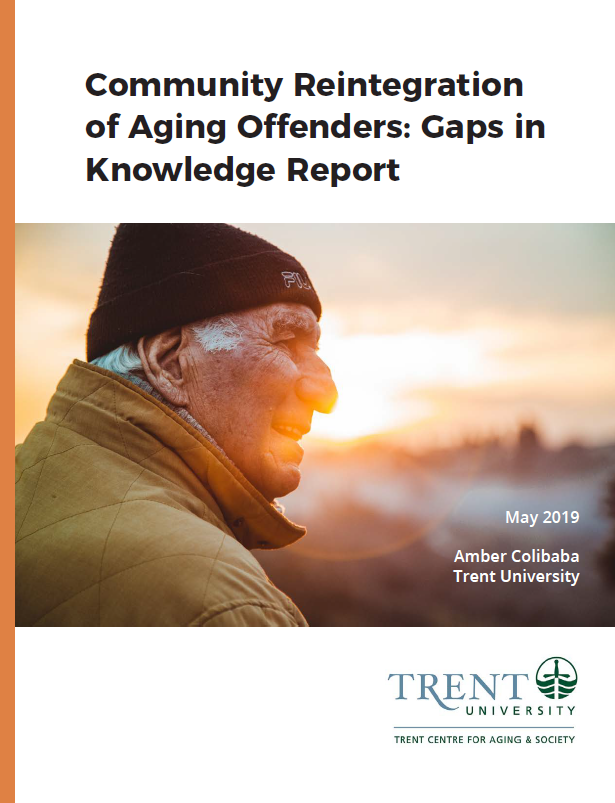 "The No Place to Call Home: The Challenges of Reintegrating Senior Parolees into the Community and Long Term Care Symposium was used to gather organizations, such as Correctional Service Canada, Peterborough Reintegration Services, Citizens Advisory Committee, Elder Abuse Ontario as well as Trent University programs including School of Nursing, Social Work, Sociology and Forensics, together to discuss the silent issue of community reintegration of aging offenders.
"The No Place to Call Home: The Challenges of Reintegrating Senior Parolees into the Community and Long Term Care Symposium was used to gather organizations, such as Correctional Service Canada, Peterborough Reintegration Services, Citizens Advisory Committee, Elder Abuse Ontario as well as Trent University programs including School of Nursing, Social Work, Sociology and Forensics, together to discuss the silent issue of community reintegration of aging offenders.
The No Place to Call Home symposium, and ultimately this report, started from the goal The No Place to Call Home symposium, and ultimately this report, started from the goal of the local CAC, which is to work with the community to increase education on the rising number of aging parolees and to understand our responsibility as a community. These individuals have served their sentences for the crimes they committed and by law can return to our communities to reside. This overarching goal of education stemmed into the goals of the No Place to Call Home symposium to find solutions on how to address the issue of the community reintegration of aging offenders.
Source: Trent Centre for Aging & Society
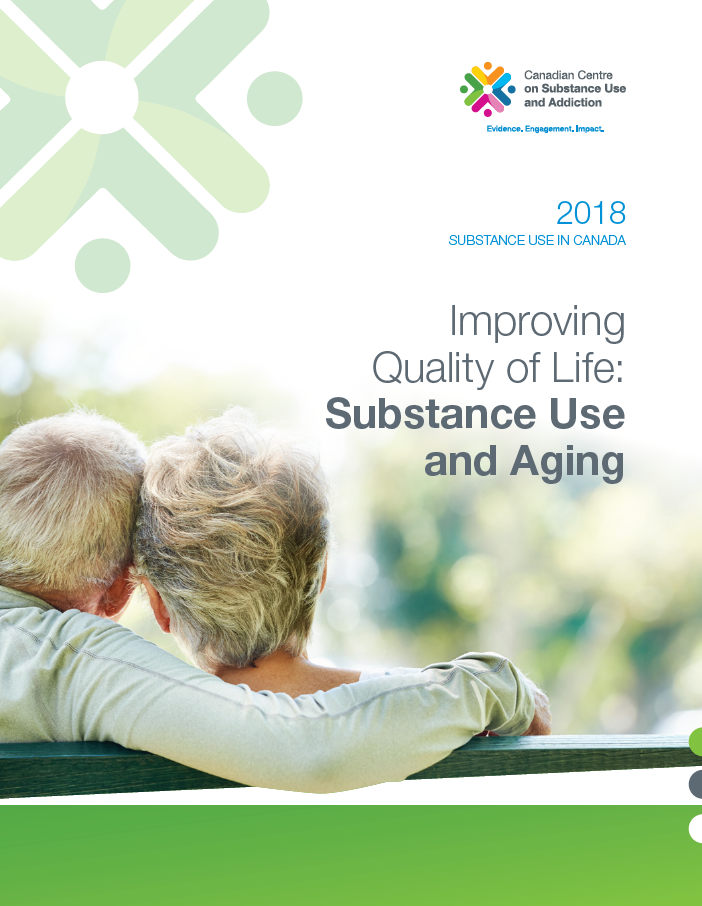 "At the Canadian Institutes of Health Research Institute of Neurosciences, Mental Health and Addiction, an important part of our mandate is to focus on research into substance use. While typically this has centered around younger populations, we now know that substance use is far more common among older adults than previously thought. We also know that the issue can be addressed and we can’t afford to wait. As Canada’s population continues to age, the time for action is now. We need to put in place, as soon as possible, systems and strategies to promote healthy aging. To do so, we must improve our understanding of older adults’ unique needs with respect to substance use. We have to reduce the stigma that surrounds substance use so that older adults engage in the conversation and seek support. And, finally, we have to follow through and ensure older adults, their families and caregivers know how to access the services and supports they need."
"At the Canadian Institutes of Health Research Institute of Neurosciences, Mental Health and Addiction, an important part of our mandate is to focus on research into substance use. While typically this has centered around younger populations, we now know that substance use is far more common among older adults than previously thought. We also know that the issue can be addressed and we can’t afford to wait. As Canada’s population continues to age, the time for action is now. We need to put in place, as soon as possible, systems and strategies to promote healthy aging. To do so, we must improve our understanding of older adults’ unique needs with respect to substance use. We have to reduce the stigma that surrounds substance use so that older adults engage in the conversation and seek support. And, finally, we have to follow through and ensure older adults, their families and caregivers know how to access the services and supports they need."
Source: Canadian Centre on Substance Use and Addiction
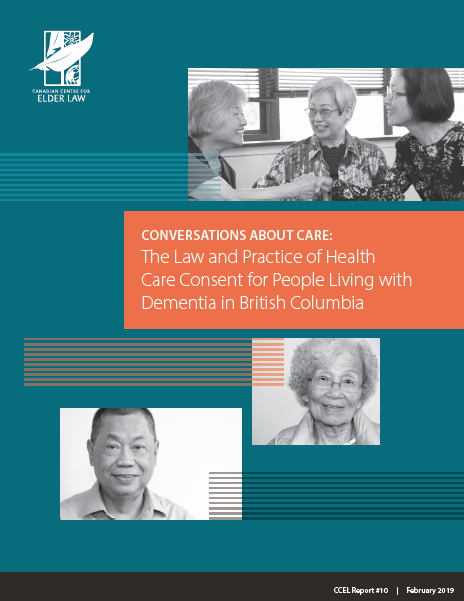
Our right to make our own health care decisions is a fundamental right protected by BC laws, the Canadian Charter of Rights and Freedoms, and international conventions and treaties. Unfortunately, sometimes health care professionals and family do not respect the rights of people living with dementia. Sometimes others assume that people living with dementia are not able to understand information or make their own decisions.
In 2016 the Canadian Centre for Elder Law and the Alzheimer Society of B.C. worked together to study health care decision-making for people living with dementia in BC.
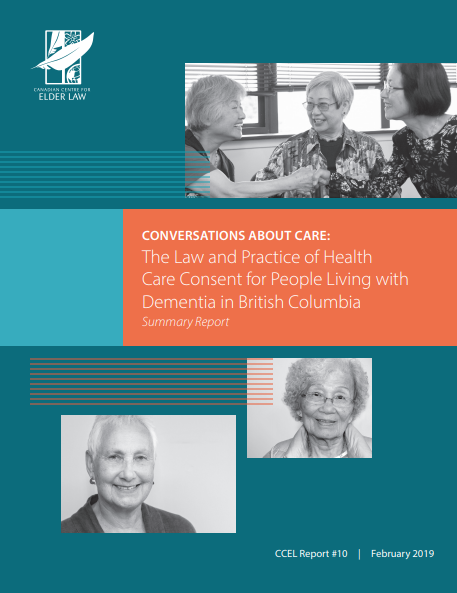
Our right to make our own health care decisions is a fundamental right protected by BC laws, the Canadian Charter of Rights and Freedoms, and international conventions and treaties. Unfortunately, sometimes health care professionals and family do not respect the rights of people living with dementia. Sometimes others assume that people living with dementia are not able to understand information or make their own decisions.
In 2016 the Canadian Centre for Elder Law and the Alzheimer Society of B.C. worked together to study health care decision-making for people living with dementia in BC.
Page 9 of 20

















